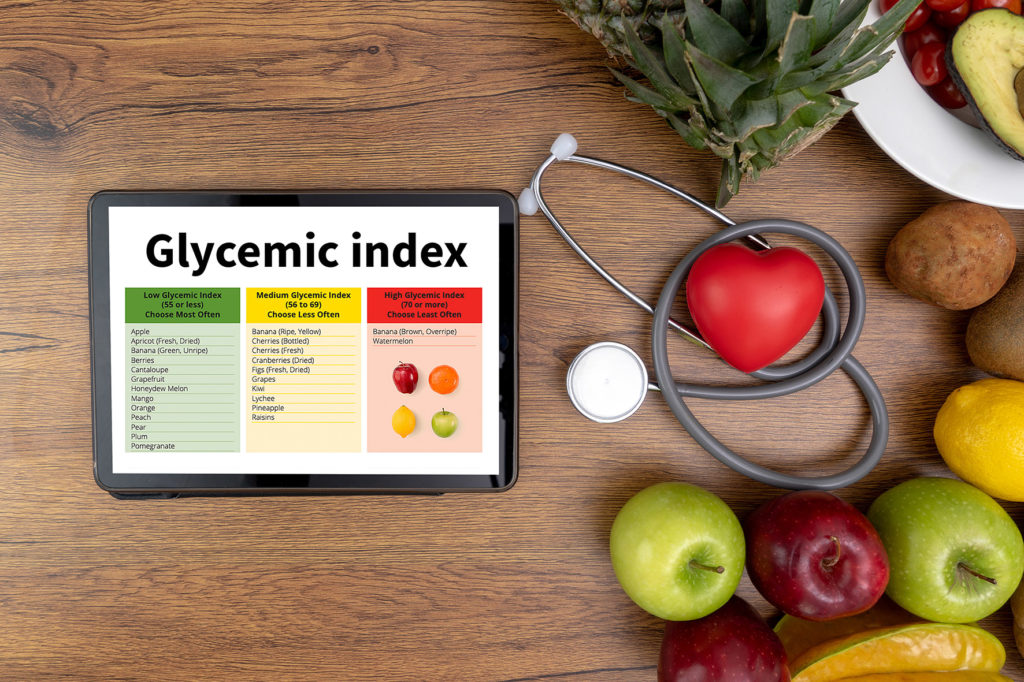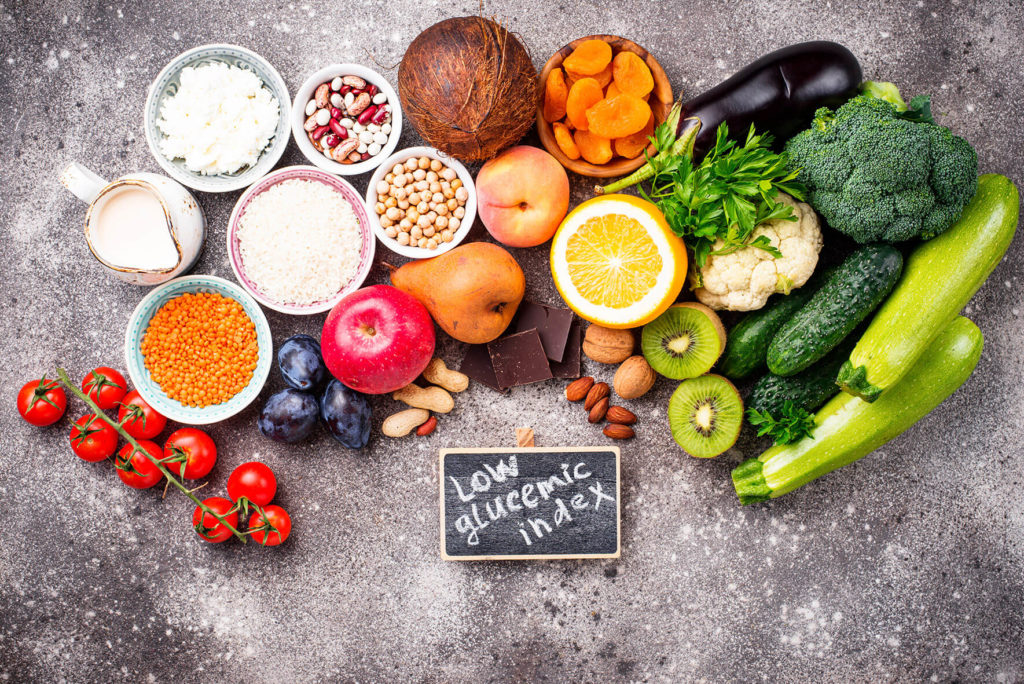The discovery of the Glycaemic Index (GI) has challenged the traditional classification of carbohydrates into 'fast sugars' and 'slow sugars'. And thus its behaviour with insulin, and weight gain. In this article, we detail all this.
WHAT IS BLOOD SUGAR?
Glycaemia is the concentration of glucose in the blood and is regulated by two hormones: insulin, to lower blood sugar, and glucagon to raise it.
When we eat a carbohydrate food (bread, pasta, potato, fruit, sugar. . . ) it is transformed into glucose, which crosses the intestinal barrier and enters the bloodstream.
This causes an increase in blood sugar, i. e. the level of sugar in the blood compared to its baseline level, which on an empty stomach is about 1g per litre of blood.
This blood sugar level will trigger the secretion of insulin, the main role of which will be to relocate the excess glucose in the blood in order to store it in the liver and muscle tissue.
INSULIN AND FAT GAIN
Contrary to what was believed for a long time, the energy factor, without being negligible, is not a determining factor in weight gain. The main cause is hyperinsulinism, i. e. an excessive and repeated increase in insulin.
The more glucose there is in the blood, the more insulin the body will tend to produce. The more insulin the body produces, the more likely it is to store glucose as fat. Insulin therefore generates fat stores.
Insulin also slows down the body's ability to convert old fat stores into glucose for the body. Therefore, if you have too much insulin, it will be more difficult to lose fat because the extra insulin prevents fat from being burnt.
The process of losing body fat is therefore dependent on the glycaemic index of the food you eat. The higher the glycaemic index, the more insulin the body has to release, and the less body fat you can lose.
INSULIN AND HEALTH PROBLEMS
If a person exceptionally consumes one or more high GI carbohydrates, the insulin secretion this causes is sufficiently effective to bring the blood glucose curve down normally.
But if the consumption of high GI carbohydrates becomes a habit, insulin resistance occurs. This is because glucose is slow to leave the bloodstream despite the insulin. This is the stage of insulin resistance which is particularly marked in type II diabetes.
The insulin receptors no longer function normally, so that the cells do not recognise the insulin and are no longer correctly informed of its presence. The blood sugar level then remains abnormally high because the glucose is slow to be delocalized. Faced with this inertia, the body then orders the pancreas to secrete a new dose of insulin, which only aggravates the hyperinsulinism.
A vicious circle is thus created in which hyperinsulinism maintains insulin resistance.
Therefore, for your health and in order to lose weight, favour foods with a low glycemic index and don't hesitate to supplement yourself with glycemic regulators!



